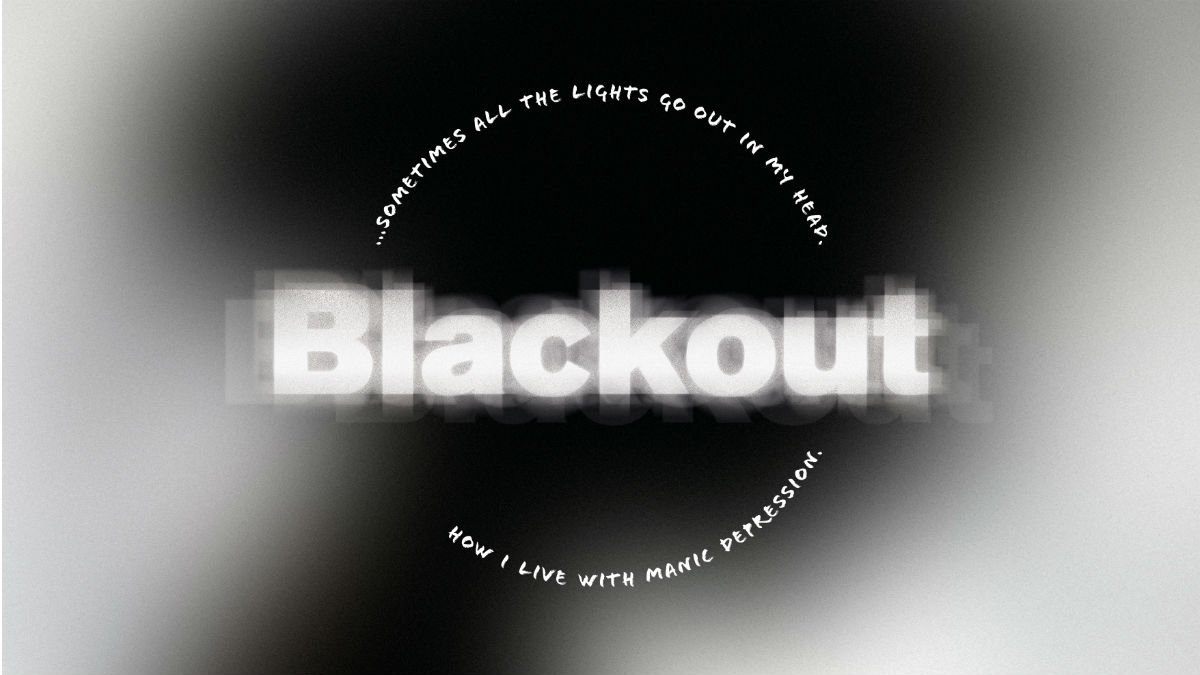Immersive art installation combines design and technology to explore mental health awareness
Creativity and technology combine to present Blackout; a unique opportunity to experience what it is like to live with Bipolar II Disorder – once known as manic depression – through a powerful interactive art installation.

Sponsored by Robe, from Thursday 2 to Saturday 4 May Guildford School of Acting (GSA) present this mental health awareness project in the Bellairs Theatre at the University of Surrey.
GSA lighting tutor Mig Burgess, the creator and producer of Blackout, has been diagnosed with Bipolar II. She has spent her career in technical theatre and this installation interprets the condition that has defined her life through the concepts and tools of her day-to-day professional work.
She said: “This project is my attempt to show the world what it’s like to have Bipolar II Disorder, but in my own way – visually rather than verbally. I’ve worked hard to understand, reflect upon and self-analyse my condition and now I’m comfortable with who I am. I want to provoke conversations, inspire change and cultivate a deeper understanding of mental health so that people who are affected don’t feel stigmatised.”
Through an immersive lighting, sound and video installation, Blackout takes its audience on a complex sensory journey inside the mind of an individual diagnosed with Bipolar II as they transition from a functional state of feeling ‘normal’, through mania, into a depressive low, and then start to regain balance and structure again. The five-minute odyssey is experienced solo and mirrors the solitary nature of the condition itself.
Fusing art, technology, science and research this pioneering project attempts to change perceptions of mental illness, dissolve some of the unhelpful labels surrounding it, initiate discussions and offer support to those with the condition who continue to suffer in silence.
Senior Lecturer and Research Director in Clinical Psychology Dr Paul Hanna will be evaluating the perceptions of audience members both before and after experiencing Blackout. He said: “When I was approached to join the Blackout project it instantly captured my imagination. Voices of individuals with a mental health diagnosis have often been silenced through a complex range of factors including stigma and discrimination, so the concept behind Blackout was very exciting.
“Blackout offers an opportunity to break down some of the social barriers to understanding mental health by enabling direct communication between the individual diagnosed with Bipolar and the general audience in a creative way.
“We will collect data at the time of booking, directly after the experience and one month later, to assess if the experience changes awareness of and attitudes towards Bipolar Disorder and mental health. This will help us understand the project’s impact and hopefully pave the way for interdisciplinary projects utilising the arts and technology in mental health awareness initiatives.”
Media Contacts
External Communications and PR team
Phone: +44 (0)1483 684380 / 688914 / 684378
Email: mediarelations@surrey.ac.uk
Out of hours: +44 (0)7773 479911